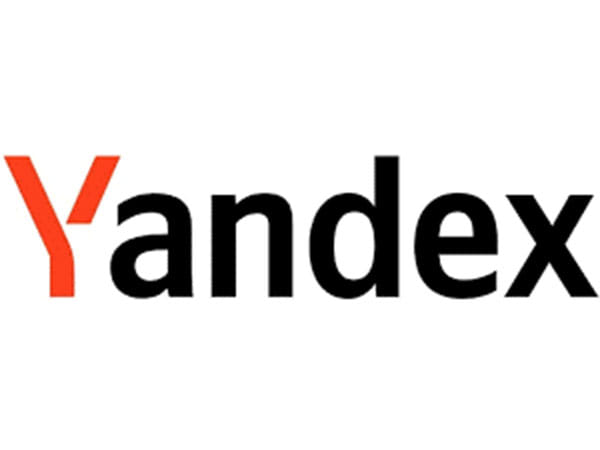VMPL
Bangalore (Karnataka) [India], July 29: The Yandex Research team, in collaboration with researchers from IST Austria, NeuralMagic, and KAUST, have developed two innovative compression methods for large language models: Additive Quantization for Language Models (AQLM) and PV-Tuning. When combined, these methods allow for a reduction in model size by up to 8 times while preserving response quality by 95%. The methods aim to optimize resources and enhance efficiency in running large language models. The research article detailing this approach has been featured at the International Conference on Machine Learning (ICML), currently underway in Vienna, Austria.
Key features of AQLM and PV-Tuning
AQLM leverages additive quantization, traditionally used for information retrieval, for LLM compression. The resulting method preserves and even improves model accuracy under extreme compression, making it possible to deploy LLMs on everyday devices like home computers and smartphones. This results in a significant reduction in memory consumption.
PV-Tuning addresses errors that may arise during the model compression process. When combined, AQLM and PV-Tuning deliver optimal results — compact models capable of providing high-quality responses even on limited computing resources.
Method evaluation and recognition
The effectiveness of the methods was rigorously assessed using popular open source models such as LLama 2, Llama 3, Mistral, and others. Researchers compressed these large language models and evaluated answer quality against English-language benchmarks — WikiText2 and C4 — maintaining an impressive 95% answer quality as the models were compressed by 8 times.
Who can benefit from AQLM and PV-Tuning
The new methods offer substantial resource savings for companies involved in developing and deploying proprietary language models and open-source LLMs. For instance, the Llama 2 model with 13 billion parameters, post-compression, can now run on just 1 GPU instead of 4, reducing hardware costs by up to 8 times. This means that startups, individual researchers, and LLM enthusiasts can run advanced LLMs such as Llama on their everyday computers.
Exploring new LLM applications
AQLM and PV-Tuning make it possible to deploy models offline on devices with limited computing resources, enabling new use cases for smartphones, smart speakers, and more. With advanced LLMs integrated into them, users can use text and image generation, voice assistance, personalized recommendations, and even real-time language translation without needing an active internet connection.
Moreover, models compressed using the methods can operate up to 4 times faster, as they require fewer computations.
Implementation and access
Developers and researchers worldwide can already use AQLM and PV-Tuning, which are available on GitHub. Demo materials provided by the authors offer guidance for effectively training compressed LLMs for various applications. Additionally, developers can download popular open-source models that have already been compressed using the methods.
ICML highlight
A scientific article by Yandex Research on the AQLM compression method has been featured at ICML, one of the world’s most prestigious machine learning conferences. Co-authored with researchers from IST Austria and experts from AI startup Neural Magic, this work signifies a significant advancement in LLM compression technology.
Yandex is a global technology company that builds intelligent products and services powered by machine learning. The company aims to help consumers and businesses better navigate the online and offline world. Since 1997, Yandex has been delivering world-class, locally relevant search and information services and has also developed market-leading on-demand transportation services, navigation products, and other mobile applications for millions of consumers across the globe.
For reference [additional details for media & journalists]
Deploying large language models (LLMs) on consumer hardware is challenging due to the inherent trade-off between model size and computational efficiency. Compression methods, such as quantization, have offered partial solutions, but often compromise model performance.
To address this challenge, researchers from Yandex Research, IST Austria, KAUST, and NeuralMagic developed two compression methods — Additive Quantization for Language Models (AQLM) and PV-Tuning. AQLM reduces the bit count per model parameter to 2-3 bits while preserving or even enhancing model accuracy, particularly in extreme compression scenarios. PV-Tuning is a representation-agnostic framework that generalizes and improves upon existing fine-tuning strategies.
AQLM’s key innovations include learned additive quantization of weight matrices, which adapts to input variability and joint optimization of codebook parameters across layer blocks. This dual strategy enables AQLM to outperform other compression techniques, setting new benchmarks in the field.
AQLM’s practicality is demonstrated by its implementations on GPU and CPU architectures, making it suitable for real-world applications. Comparative analysis shows that AQLM can achieve extreme compression without compromising model performance, as evidenced by its superior results in metrics like model perplexity and accuracy in zero-shot tasks.
PV-Tuning provides convergence guarantees in restricted cases, and has been shown to outperform previous methods when used for 1-2 bit vector quantization on highly-performant models such as Llama and Mistral. By leveraging PV-Tuning, the researchers achieved the first Pareto-optimal quantization for Llama 2 models at 2 bits per parameter.
The effectiveness of the methods was rigorously assessed using popular open-source models such as LLama 2, Mistral, and Mixtral. Researchers compressed these large language models and evaluated answer quality against English-language benchmarks — WikiText2 and C4 — maintaining an impressive 95% answer quality as the models were compressed by 8 times.

* The closer the average accuracy of answers in tests is to the original model, the better the new methods are at preserving the quality of answers. The figures above show the combined results of the two methods, which compress the models by, on average, 8 times.
(ADVERTORIAL DISCLAIMER: The above press release has been provided by VMPL. ANI will not be responsible in any way for the content of the same)
This story is auto-generated from a syndicated feed. ThePrint holds no responsibility for its content.






